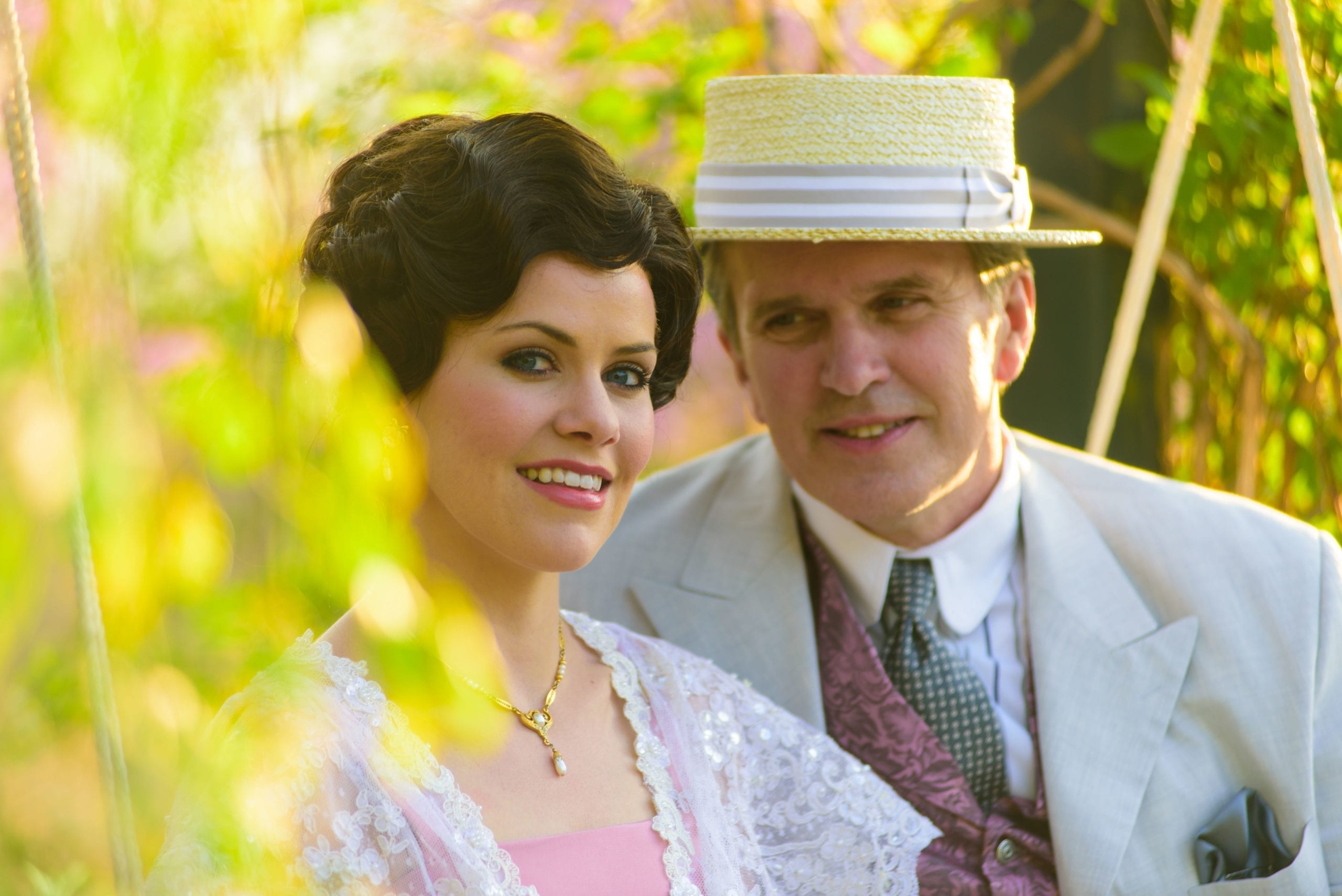SALT LAKE CITY — The Music Man has become so entrenched in American culture since its premiere in 1957 that reviewing it is like reviewing the Liberty Bell or Yellowstone National Park. This show is a treasure, especially with the hard work of the cast and crew at Pioneer Theatre Company.

Central to any production of The Music Man is the actor playing Harold Hill, George Dvorsky in this production. Dvorsky has a rich, sonorous voice that gives a rare forcefulness to songs like “Seventy-Six Trombones.” He also gives Harold a smarmy quality that suitably communicates the unscrupulous nature of the travelling swindler. Unfortunately, Dvorsky’s performance is stiff in many of the musical numbers (like “Sadder-But-Wiser Girl” and “Trouble”) and in his conversations with Marcellus. Without a spring in every step and a smooth demeanor, it becomes difficult to believe that Harold could convince an entire town that he was a musician—let alone a band leader.

As the production’s female lead, Lizzie Klemperer exudes charm and sweetness. Her rendition of “My White Knight” was heartfelt, and for the first time made me fully realize how much in love Marian was with her fantasy of the perfect man. Klemperer also had a wonderful dynamic with her stage mother (Mary Fanning Driggs as Mrs. Paroo) and younger brother (Wally Inkley as Winthrop) that showed how Marian was filling some of the void left by the death of her father while still remaining under the meddling influence of her mother. The only drawback to Klemperer’s performance was the lack of romantic spark she had with Dvorsky, which made “‘Till There Was You” a disappointing climax to Harold and Marian’s love story.

But the truly masterful artist in this production is its director and choreographer, Karen Azenberg. Clearly aware that many productions of The Music Man looks remarkably similar, Azenberg took great care to ensure that Pioneer’s version would be as unique as possible, given Meredith Willson‘s script. Songs that are usually just musically staged (such as “The Wells Fargo Wagon” or “Rock Island”) evolved into full-blown dance numbers under Azenberg’s guidance, and the result was delightful. Azenberg also added little bits of stage business, like introducing Tommy’s “gang,” that added layers of humor to the already witty script. Also, I was pleased that Azenberg treated the ensemble as a character itself, instead of just a mass of people who provide backup to the leads, which emphasized the show’s nature as an affectionate salute to Willson’s childhood Iowa.

The only misfire in Azenberg’s direction was the tendency for some characters—especially Harold Hill—to deliver their lines (especially jokes) directly to the audience. This breakdown of the fourth wall was distracting and made the show sometimes feel like an old hokey vaudeville sketch than an ebullient evening of theatre.
One of the most memorable elements of Pioneer’s production is the set design by George Maxwell. Although every set Maxwell created was impressive, somehow the sets that were only used in one scene were the most dazzling. The two-story library set was so dazzling, that I would have been happy if the entire play had taken place there. It’s levels, spiral staircase, and movable bookcase gave Azenberg so many options for the library dance that the number could have lasted half an hour without exhausting the set’s potential. The train set was remarkable in its detail, with small touches like a spittoon and an old fashioned water cooler. Finally, the footbridge set was so gorgeous that it belongs in a textbook on set design to inspire future generations.

Other behind-the-scenes artists contributed greatly to the production’s success. K. L. Alberts‘s costume designs were impeccable and perfectly matched the bright, cheery mood of the play. I also appreciated the efforts of music director/orchestra conductor Michael Rice, who ensured that the possibilities of Willson’s score were fully realized.
All in all, fans of The Music Man have plenty to love in this production. Indeed, even jaded theatre people who think they know everything that the show has to offer can discover something new. Pioneer Theatre Company has served up a wonderful dish of Americana. Like the Liberty Bell, it has some flaws and cracks, but those just contribute to the uniqueness of this production. It’s no “trouble” to fall “sincerely in love” with Pioneer Theatre Company’s The Music Man.
[box type=”shadow”]The Pioneer Theatre Company production of The Music Man plays Mondays through Thursdays at 7:30 PM, Fridays and Saturdays at 8 PM, and Saturdays at 2 PM through May 16 at the Simmons Memorial Theatre (300 S. 1400 E., Salt Lake City). Tickets are $38-64. For more information, visit www.pioneertheatre.org.[/box]
